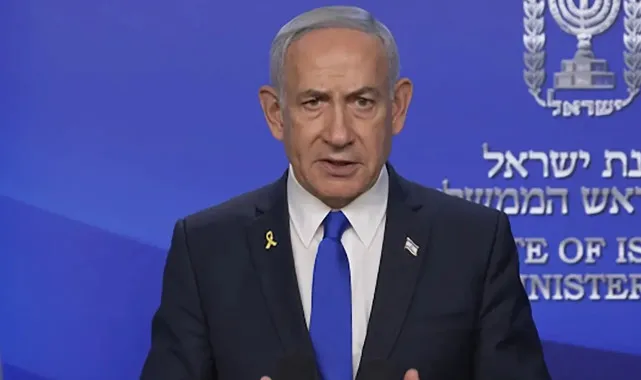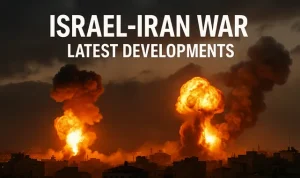Israel Launches Preemptive Strike on Iran Amid Rising Nuclear Tensions

In a dramatic escalation of Middle East hostilities, Israel has launched a large-scale military operation against Iran, claiming it is a necessary step to halt Tehran’s alleged nuclear ambitions. The military campaign, dubbed “Operation Rising Lion”, marks the most direct Israeli action against Iranian territory in decades.
Strategic Strikes Target Nuclear Infrastructure
According to Israeli defense officials, the coordinated airstrikes focused on key nuclear development sites, missile production facilities, and command centers across Iran. Among the primary targets were the heavily fortified Natanz enrichment complex and other high-profile nuclear infrastructure.
Israeli Prime Minister Benjamin Netanyahu justified the operation in a nationally televised address, stating:
“Iran was on the verge of acquiring nuclear weapons capability. We had no choice but to act decisively and prevent a catastrophe.”
High-Ranking IRGC Officials Reportedly Killed
Iranian state media confirmed multiple casualties, including several senior members of the Islamic Revolutionary Guard Corps (IRGC). Among the dead were General Amir Ali Hajizadeh, head of Iran’s missile forces, and Major General Hossein Salami, commander of the IRGC. Though Iran has not officially verified all names, sources within the regime suggest significant losses in leadership.
Iran Responds with Drone Barrage
In retaliation, Iran launched more than 100 drones toward Israeli targets. The Israeli Defense Forces (IDF) reported that the majority of the drones were successfully intercepted by its advanced missile defense systems, including the Iron Dome and David’s Sling platforms.
An Iranian Defense Ministry spokesperson labeled Israel’s actions as a “blatant declaration of war” and vowed a “proportionate and punishing response.”
Regional and Global Reactions
The global response was swift. The United Nations has called for an emergency Security Council meeting, while European leaders, including those from France, Germany, and the UK, urged restraint from both sides. Turkish President Erdoğan condemned the violence and warned of broader consequences for the region.
Meanwhile, the United States has called on both nations to avoid a full-scale war, though it reaffirmed its commitment to Israel’s security. Russia and China, on the other hand, blamed the West for escalating tensions through sanctions and military presence in the Gulf.
What Happens Next?
The situation remains highly volatile. Both Iranian and Israeli military forces are now on maximum alert, and international airspace over parts of the Middle East has been restricted. Analysts warn that unless diplomatic backchannels are urgently activated, the region could slide into a larger and more destructive conflict.




